Using Styrofoam boxes to store food, especially hot food, is becoming a common habit in modern life. However, behind the convenience and low cost, this type of item has many potential serious health risks if not produced and used properly.
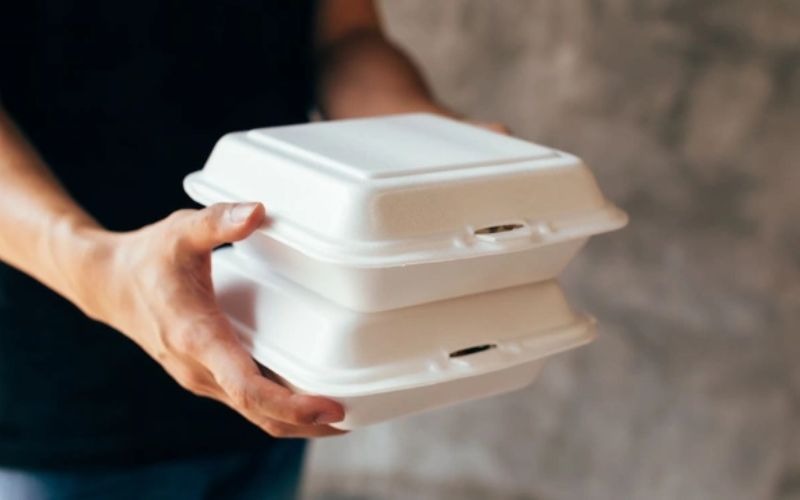 |
| If the foam box is made from recycled, impure materials or uses banned additives during the manufacturing process, the risk of lead and cadmium contamination is very high. |
The Food Safety Department ( Ministry of Health ) recently warned about the risk of toxic chemical contamination from poor quality foam boxes, which can lead to exposure to lead, cadmium, styrene and ethylbenzene, compounds that can cause cancer or long-term damage to internal organs.
Foam boxes commonly found on the market today are mainly made from polystyrene (PS), which is 95% air and only about 5% plastic. Thanks to this structure, foam boxes are very light, well insulated and convenient to use.
However, because of this characteristic, this material is only suitable for cold food or food with a temperature below 70°C. When exposed to high temperatures, especially hot, greasy or acidic foods such as pickles, lemon juice, PS molecules can decompose and release toxic compounds. Substances such as monostyrene, a breakdown product of polystyrene, can seep into food, causing adverse effects on the liver, nervous system and overall health if accumulated in the body.
Not stopping there, if foam boxes are produced from recycled, impure materials or use banned additives during the production process, the risk of lead and cadmium contamination is very high.
These are all extremely toxic heavy metals that can accumulate in the body over time and cause damage to the brain, kidneys, and cardiovascular system, and are especially dangerous for young children and pregnant women. According to the Food Safety Department, the use of foam boxes of unknown origin and without quality control in high temperature environments is one of the causes of exposure to toxic chemicals through food and drink.
Health experts also point out that not only styrofoam boxes, but also plastic items such as plastic boxes and nylon bags - which are used by many businesses to store hot broth and soup - pose similar dangers.
Associate Professor Dr. Nguyen Duy Thinh, a food technology expert, said that when plastic comes into contact with hot, greasy or highly acidic food, chemical reactions will occur that create toxins that seep into the food and accumulate in the user's body. These toxins may not cause obvious symptoms at first, but in the long run, they will lead to chronic diseases such as liver failure, kidney failure, endocrine disorders, and even cancer.
More worryingly, many people have the habit of reusing plastic and foam boxes many times. Old, scratched or deformed plastic products can easily become a source of toxins when exposed to heat. In addition, storing food for a long time in plastic boxes also creates conditions for bacteria and mold to grow, further increasing the risk of food safety.
Not only affecting human health, foam boxes and disposable plastics are also a hazard to the environment. According to Associate Professor, Dr. Tran Hong Con (University of Natural Sciences , Vietnam National University, Hanoi), over time, these products decompose into microplastics, tiny plastic particles that can penetrate water, soil, air and from there enter the food chain of animals and humans. Microplastics have now been detected in the blood, lungs and even in the placenta of humans, posing a new concern for modern medicine.
Faced with this worrying situation, the Food Safety Department recommends that consumers should only use foam boxes of clear origin that meet food safety standards.
Absolutely do not use Styrofoam boxes to store hot food, food containing a lot of oil or high acidity. Styrofoam boxes should be used once and not reused. In particular, do not heat food directly in Styrofoam or plastic boxes in the microwave, because high temperatures can decompose the plastic structure, releasing toxic substances.
For manufacturers and traders, the Ministry of Health requires strict compliance with regulations on food hygiene and safety conditions, not using recycled materials or banned additives, and clearly stating instructions for use on the packaging, including temperature limits, acidity, and fat content of the food.
To protect the health of families and the community, experts recommend replacing foam boxes and disposable plastic items with environmentally friendly items such as glass, ceramic, stainless steel or bags made from rattan, bamboo, and paper.
In particular, people need to raise awareness, change consumption habits, eliminate the use of substandard nylon bags and foam boxes, thereby contributing to protecting their health and reducing environmental pollution.
Source: https://baodautu.vn/canh-bao-nguy-co-nhiem-doc-tu-hop-xop-dung-thuc-pham-khong-ro-nguon-goc-d273824.html




![[Photo] President Luong Cuong receives Speaker of the New Zealand Parliament Gerry Brownlee](https://vphoto.vietnam.vn/thumb/1200x675/vietnam/resource/IMAGE/2025/8/29/7accfe1f5d85485da58b0a61d35dc10f)








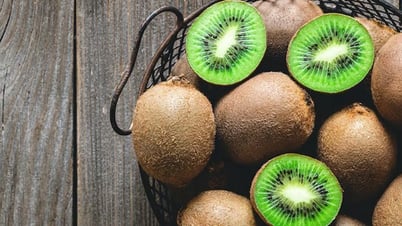















![[Photo] Hanoi is ready to serve the occasion of the 80th National Day Celebration on September 2nd](https://vphoto.vietnam.vn/thumb/1200x675/vietnam/resource/IMAGE/2025/8/29/c838ac82931a4ab9ba58119b5e2c5ffe)














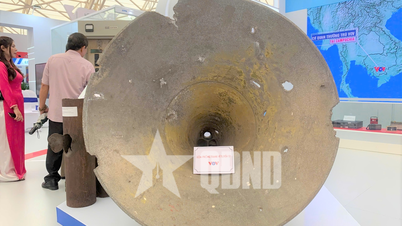


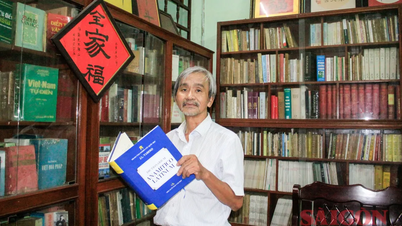























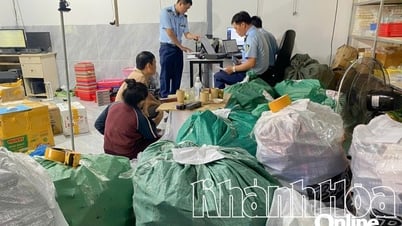













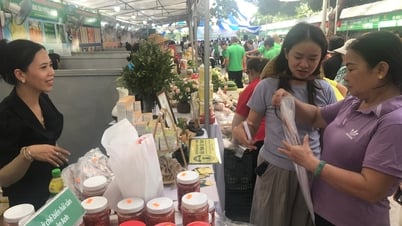







Comment (0)